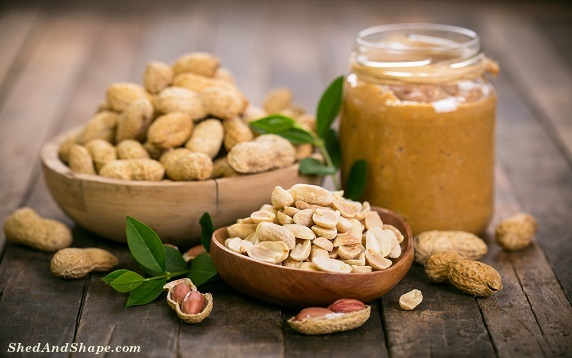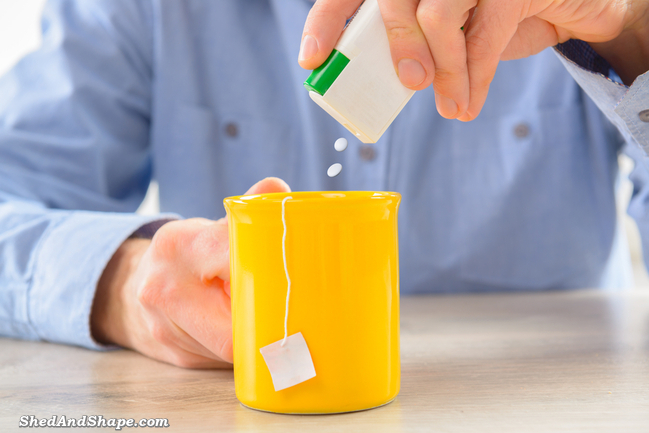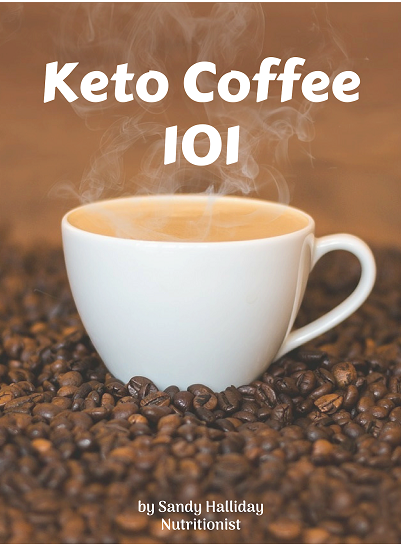“Is peanut butter keto-friendly?” is a common question I see getting asked in some of the online health groups.
Peanuts are actually not true nuts, they are legumes, the same family as lentils, peas and beans, so you might think that they are not keto-friendly at all because legumes are too high in carbs.
Related reading: Best Nuts to Eat On A Keto Diet
As a high-fat and low-carb type of diet, the keto diet encourages its followers to focus on eating healthy high-fat foods in exchange for carbs.
Related reading: Best Fats To Eat On A Low Carb Diet
They are clearly high in fat, which is why it’s one of those foods that keto dieters are fond of. But is eating peanut butter on keto a good idea?
In this article, we’ll dig deeper into the nutrient content of the peanut butter and see if it’s safe to consume, whether you’re on the keto diet or not. Hopefully, this can help us to address the question, “Is peanut butter keto-friendly?”
What Is Peanut Butter?
Of course, everyone is familiar with the peanut butter. This delicious spread is loved by many around the world. Its rich and creamy texture sticks right in your mouth before it melts wonderfully.
Peanut butter is eaten as a spread on bread, bagel, crackers, toast, crepes, etc. It’s also used as an ingredient in a number of desserts and smoothies.
Peanut butter is made by roasting peanuts and grinding them until they turn into a paste. It’s relatively unprocessed, although many of the commercially made peanut butter spreads of today are made with several other ingredients.
Nutrients in a Peanut Butter
Peanut butter is a relatively good source of protein. It has the right balance of all three macronutrients – proteins, carbs, and fats. A 100-gram serving of peanut butter contains the following:
• Carbohydrate – 20 grams, 6 grams are fiber. (14 grams net carbs)
• Protein – 25 grams
• Fat – 50 grams
Compared to other plant-based foods, peanut butter is a great source of protein.
What’s great about the peanut butter is that it’s high in healthy fats. Most of these fats are made of oleic acid, which is a healthy type of monounsaturated fat. This is also found in other healthy foods, such as the olive oil.
As for the carb content, the peanut butter is relatively low in carbs, making it a great choice for low carb diets like keto.
However, this may not be the case for commercially processed peanut butter spreads that may contain some carbs.
Is Peanut Butter Keto-Friendly?
As stated above, peanut butter contains a good amount of fat, which is 50 grams for every 100-gram serving. That’s quite a lot of fat, which is why it’s believed to be a great food to add to your ketogenic diet.
It’s a good source of protein too, but contains a very little amount of carbs and that’s exactly what you need for your keto diet.
Depending on the level of carbs you adhere to though it could kick you out of ketosis if you eat too much of it though.
Related reading: How Many Carbs Do You Need To Eat To Lose Weight?
However, Dara Godfrey, a registered dietitian from New York City, has pointed out that,
“Most peanut butters on the market add sugar into their product,”
It’s not therefore safe to assume that all peanut butter is healthy. Some peanut butter spreads may not be safe for keto especially the commercial ones.
Many of the commercial brand peanut butter spreads have added sugar, processed vegetable oils (hydrogenated oil) , trans fat, and other unhealthy ingredients.
Remember that eating sugar is definitely not good for keto or any diet for that matter. It’s also been linked to many health problems, including heart diseases.
Related reading: 6 Damaging Effects Of Sugar On Your Body
Problems Associated with Commercial Peanut Butter
So is peanut butter keto-friendly? Given its nutritional profile, it’s clear that the peanut butter can be good for keto.
There are some problems associated with it. First of all, it has been found that peanuts tend to get moldy very easily after being stored in a warm and humid condition.
Related reading: Is Mold in Coffee Bad for You?
This could lead to the development of toxic molds known as the Aspergillus flavus and A. parasiticus.
These molds are known to produce a harmful substance called Aflatoxin and have been found to cause the growth of cancer in some people. According to the USDA,
“Aflatoxins are toxic metabolites produced by the molds Aspergillus flavus, Aspergillus nomius, and Aspergillus parasiticus. If present in sufficient amounts, aflatoxins are known to be carcinogenic and may cause acute toxicity.”
Although the USDA has said that it closely monitors the peanuts in the US and tests crops for the presence of Aflatoxins, it’s likely that you could still be exposed to this toxic substance if you eat a lot of peanut butter.
Some health stores that manufacture their own peanut butter may not very vigilant and their products may contain some low level of Aflatoxin. Best to look for natural and organic peanut butter.
It’s also worth noting that the proteins derived from legumes usually have lower levels of the amino acids methionine and cysteine compared to other protein sources.
Methionine insufficiency could put your health at risk. However if you are eating grass-fed meat on your keto diet this should not be a problem.
Avoid Buying Nut Butter in Plastic Containers
One thing I would warn you about is buying peanut butter, or any other fatty food for that matter, in plastic containers.
Tamara Rubin. a leading child health expert, has warned shoppers against buying peanut butter in plastic ‘jars’, claiming it’s ‘among the most toxic foods out there.’ This is because toxic chemicals can get into food from plastic containers.
While manufacturers use PET (Polyethylene Terephthalate) containers which they claim is safe for food use, the chemical industry has stated that virtually all food packaging materials contain substances that can migrate into the food they contact.
The main problem is that manufacturers heat peanut butter to enable it flow through their machinery so it pours easily into the plastic jars. This makes it easier for chemicals in the plastic to leach into the food making it a very toxic product.
The answer of course is to make sure you only buy peanut butter and other nut butters in glass jars and preferably buy organic. This Smucker’s Organic Creamy Peanut Butter is made from roasted organic peanuts and less than 1% salt.
Better Alternatives to Peanut Butter
You can still have peanut butter on your keto diet, but exercise due diligence to determine the ingredients used on a particular peanut butter spread. It should only contain peanuts and perhaps a small amount of salt.
Better yet, opt for other nut butter alternatives such as almond butter. In fact, almonds are among the best nuts to eat on keto.
Almond butter has a mild nutty flavor and tastes just as great as the peanut butter. Just like the peanut butter, it’s low in carbs, high in fats, and has a good amount of proteins too.
What’s great about almond butter is that it has twice the amount of fiber found in peanut butter. It also has more Vitamin E, calcium, and iron.
Conclusion
When it comes to the question, “Is peanut butter keto-friendly?’ the answer is yes, it definitely is. It’s high in fat and low in carbs, making it suitable for any low-carb diet.
However, you need to be careful with the type of peanut butter that you eat, especially those that are commercially made. Most of the peanut butter spread that you find in the supermarket contains a lot of carbs and will not help you to stay in ketosis.
Before buying any peanut butter spread, refer to the label of the product and find out what ingredients were used by the manufacturer. If you are really into nut butter, check out a other varieties, such as almond butter, cashew butter and macadamia nut butter.










